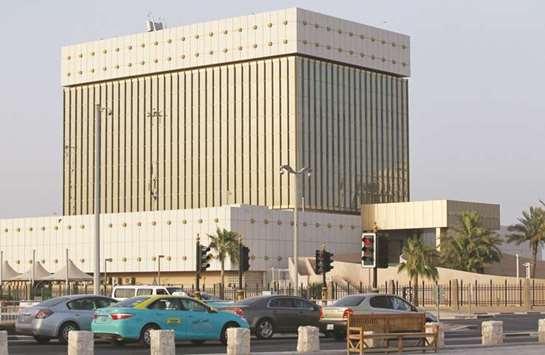The Qatar Stock Exchange (QSE) has expressed the hope that the global index compiler MSCI will maintain status quo on the use of official foreign exchange rates for transactions rather than the offshore rates.
“In view of the Qatar Central Bank’s (QCB) announcement and subsequent actions, the QSE believes that the concerns expressed by international investors have now been addressed and that this will result in a positive decision by MSCI on the use of the official rate and maintenance of the status quo,” a bourse spokesman said.
The statement comes in the wake of reports that MSCI is considering a proposal to apply offshore rates of the Qatari riyal instead of the official exchange rate in respect of transactions.
“There are no restrictions on all banking transactions including transfers, stressing the free movement of money transfers into and outside the country at the official exchange rates, which the QCB announces on daily basis,” the spokesman said.
The QCB is coordinating regularly with all banks and financial institutions to follow up banking operations and ensure the processing of all procedures and transactions as normal.
Days after the siege countries imposed economic blockade, there were reports of pressure on the riyal in the forward markets, but that dissipated soon with Qatar asserting that the country has financial buffers to the tune of 250% of gross domestic product to ring-fence the economy.
“The QCB has much more than the required foreign reserves to cover all investors’ requirements,” the QSE spokesman said, highlighting the QCB’s commitment to provide foreign currencies at the official exchange rates for investors, including local and foreign individuals and institutions.
In an interview with Euromoney, QCB Governor HE Sheikh Abdulla bin Saoud al-Thani said the central bank is committed to maintaining the stability of the riyal’s peg to the US dollar.
During the past five months, the impact of the weakening US dollar and the economic blockade on domestic liquidity had been addressed by “making available sufficient foreign currency resources and domestic liquidity” to the banking sector, he said.
Market experts said the issue is not a concern in the short-to-medium term, considering that Qatar’s natural gas exports continue to be unhindered and that it has huge reserves, especially in the form of assets under its sovereign wealth fund.
The US-based Institute of International Finance had said Qatar’s large positive net foreign assets (154% of GDP) would keep the economy resilient.
While a few foreign banks withdrew their funds from Qatari banks, the liquidity injection by the central bank, and increased public sector deposits, have mitigated the impact of the blockade on the balance sheets, the IIF said.

Cars drive past the Qatar Central Bank building in Doha (file). The QCB is coordinating regularly with all banks and financial institutions to follow up banking operations and ensure the processing of all transactions as normal.

